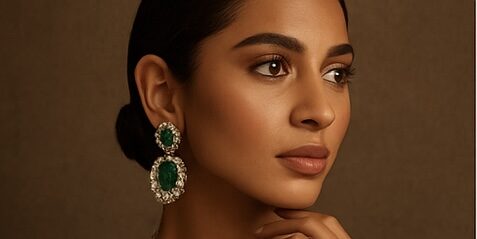Mr. Prasad Koparkar, Head of Industry and Customised Research at CRISIL, shares the key insights from their recently released report: “Top of the Pyramid”

“ despite their wealth, Indian UHNIs are still driven by a ‘value-for–money’ mindset ”
Not so surprisingly we confirmed…
Traditionally, Jewellery has held great fascination for Indians and the UHNIs are no exception. Exclusive holiday packages are the top spend (planned and impulse), whereas products bought on impulse tend to be apparel and accessories, vintage spirits and liquor, writing instruments or items of art. Impulse spends typically comprise products for personal use, guided by exclusivity, features and brand popularity.
With regards to investments, UHNIs focus on assets they understand or are familiar with. Consistent with that, real estate accounts for around 37 per cent of their investments.
If we were to conduct this study in 12 months time…
we expect the share of alternate assets in UHNI investments to increase from 9.5 per cent in 2009-10 to 11.2 per cent in 2011-12. We also foresee numerous, exciting opportunities for wealth managers and luxury brands in the future.
Given wider choice and product complexity, UHNIs are likely to use wealth-management services to gain a better understanding of these products to diversify their portfolio. Luxury brands will come up with more innovative marketing or distribution strategies for their products to tap this segment.
“ Indian UHNIs can be identified in 3 typologies: Inheritors, Self-Mades and Professionals ”
If readers remember only one thing it should be ….
That we identified three distinct types of Indian UHNIs, that each need to be communicated with and engaged in various ways.
Inheritors
– The traditional wealthy
– Focus on wealth preservation
– Buying branded, high-value products is a way of life – but are aware of emerging trends in luxury markets and are ready to experiment with newer brands
– Wealth is transferred for generations; will be passed on within the extended family.
Self-made
– The first-time entrepreneurs
– Tend to follow spending patterns similar to that of the Inheritors
– Buying branded high-value products enables them to proclaim their wealthy status
– On the investment side they tend to depend upon own/informal sources than relying on professional wealth managers
– Wealth is transferred to the immediate family.
Professionals
– Those who have earned wealth based on their academic and professional merit
– Passionate about their career; wealth is an outcome of success in career (salaries, bonuses, ESOPs, end-term benefits)
– Motto in spending is ‘Value for money’
– Believe that their children should merit wealth through good education.
For more information regarding the report, and to request a copy, please contact Karan Datt via email










